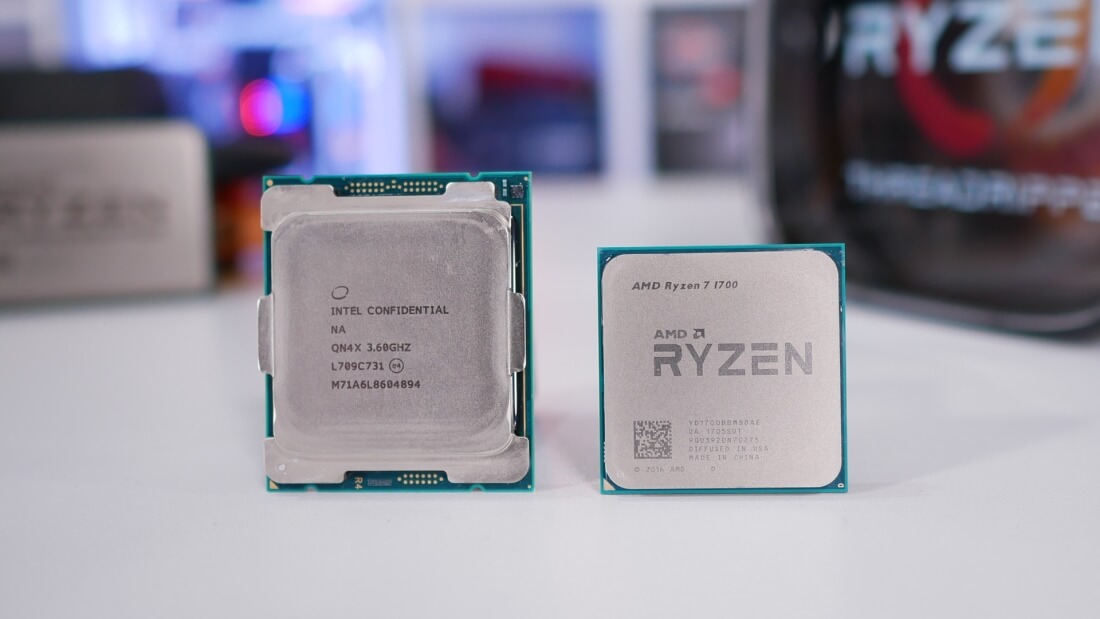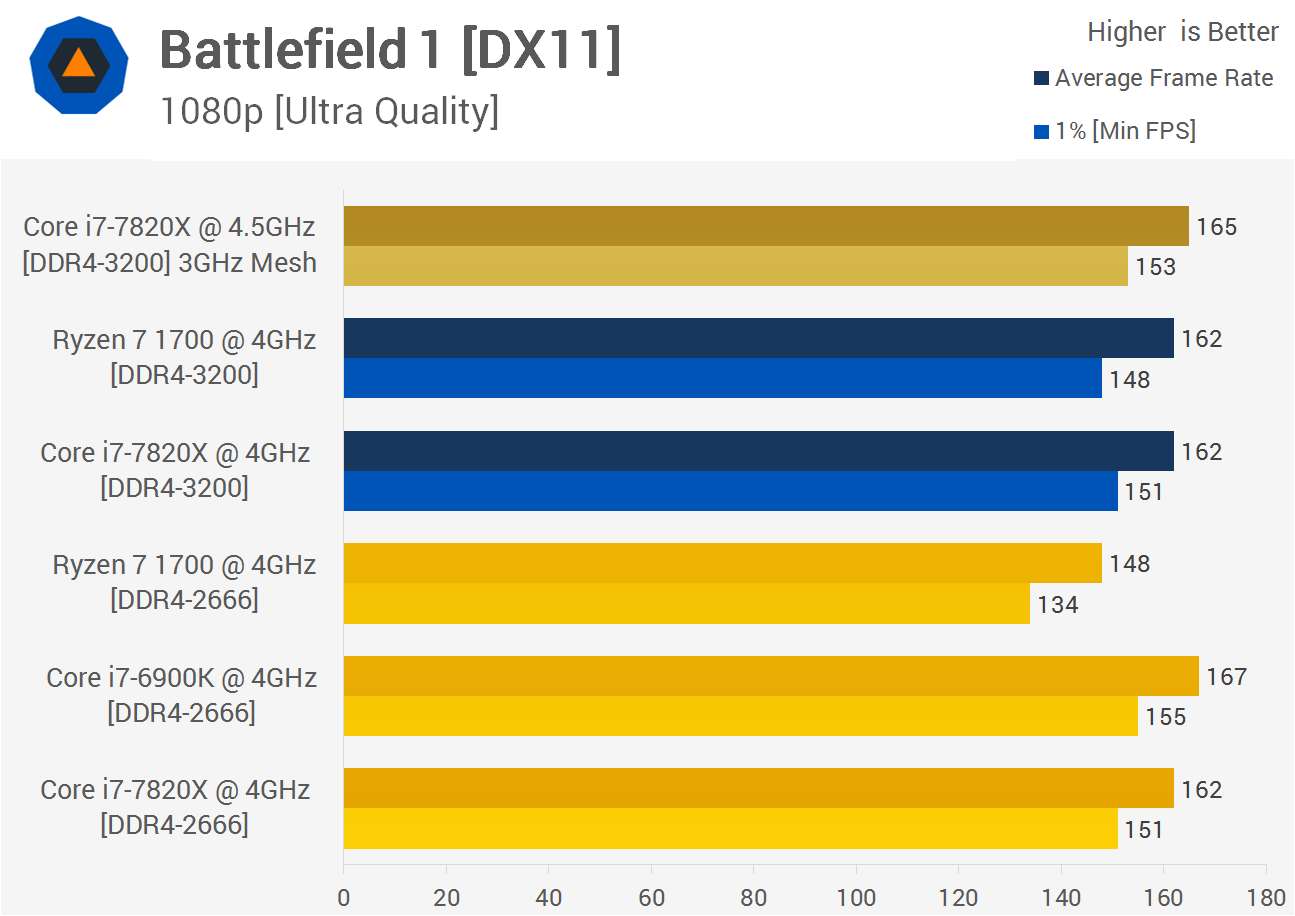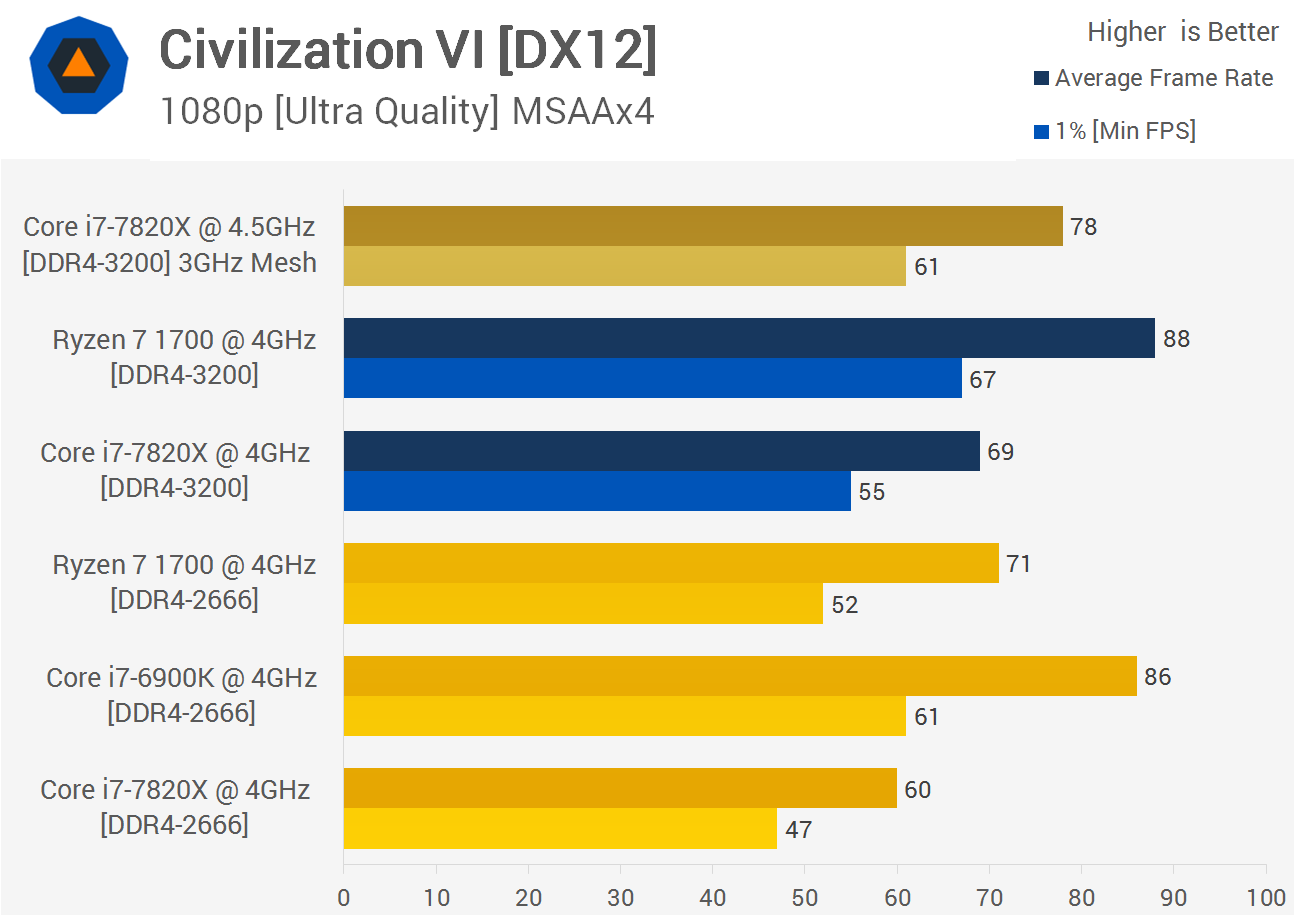Review Amd Ryzen 7 1700 Vs Intel 8 Core
Ownership an 8-core processor was a wallet ripping thing prior to the arrival of Ryzen. In absence of contest, the Intel Broadwell-Due east Core i7-6900K was ridiculously overpriced at $1,050. Intel has had to make changes to its HEDT platform by releasing the Core i7-7820X in response to the 8-cadre/16-thread Ryzen 7 1700.
However, I'yard non quite sure Intel understands how competition works. Whereas AMD's solution launched with an MSRP of $330 and can exist readily purchased online for as fiddling equally $290 today, Intel is still request $600 for the i7-7820X. Worse still, the cheaper Ryzen seven 1700 can be happily paired with a $100 motherboard, while the pricier Cadre i7-7820X requires one that costs $220+.
Although it's clear that the R7 1700 is considerably cheaper than the Core i7-7820X, nosotros've been wondering but how much faster Intel'southward solution is considering both fries accept 8 cores and 16 threads. Granted, we've already run plenty of Ryzen and Core-10 benchmarks here at TechSpot, so we accept a pretty good idea of how these CPUs compare.

Initially this commodity was going to be ane of those "for scientific discipline" type deals where the data would take been pointless for the average consumer, but looked into something nigh other benchmarks don't. I wanted to see how the Skylake-X-based Core i7-7820X fared against the Broadwell-E 6900K clock-for-clock at 4GHz using the same DDR4-2666 memory.
Figuring you lot guys would desire to see Ryzen seven in the mix, however, I as well tested the 1700 at two configurations: running at 4GHz using DDR4-2666 besides as DDR4-3200 retentivity. For the fullest motion-picture show possible, I then went back and re-tested the 7820X at 4.5GHz with a 3GHz mesh overclock and DDR4-3200 memory.
Past this indicate I was heavily sleep deprived and moved on to write the one-half-coherent introduction y'all just read. Looking back, I admit things got away from me a bit hither, but the good news is nosotros have nineteen graphs and 6 CPU configurations to check out, and then the real fun is only about to begin.
| Ryzen Organisation Specs
| Skylake-X System Specs
|
| Broadwell-E Organisation Specs
|
Gaming Benchmarks
Rather than start with productivity benchmarks (meet folio 3) we're going to skip the appetizers and caput directly for the dessert on this one with gaming results, but first let me explain what's going on with all these yellow confined.

The three yellow bars at the bottom stand for the Ryzen 7 1700, Cadre i7-6900K and Core i7-7820X all clocked at 4GHz using DDR4-2666 memory with the same primary timings. The two sets of blue bars compare the R7 1700 and i7-7820X, again at 4GHz but this time with DDR4-3200 memory. Then the golden bars at the height are showing the i7-7820X in all of it's glory at 4.5GHz using DDR4-3200 memory with the mesh interconnect overclocked to 3GHz. Each configuration was tested with the GeForce GTX 1080 Ti.
Looking at the apples to apples results (the yellow confined) for Battlefield 1, nosotros see that the 6900K is a few percent faster than the new 7820X in this title when all things are fifty-fifty, while the 7820X is 13% faster than the 1700.
What's interesting is that in one case nosotros increment the R7 1700's memory speed it can roughly lucifer the 7820X (we also saw this in our thirty game benchmark when comparing the Ryzen 5 1600 and Core i7-7800X). In fact, the increased memory speed does nothing for the Intel CPU in this game, as the 7820X is now just 2% faster when comparing minimum frame rates. Winding up Intel's 8-cadre CPU to four.5GHz didn't assistance that much with the 7820X being only 3% faster than the humble R7 1700.

Civilization VI is a game where Ryzen has looked quite poor in the by next to Intel's quad-cadre offerings such as the 7700K and information technology's a little sluggish even to this twenty-four hours. That said, throw Core-10 into the mix and Ryzen looks fine.
Clock-for-clock with the slower 2666 retention, Ryzen was eleven% faster than the 7820X though shockingly 14% slower than the 6900K. Increasing the memory frequency to 3200 boosted the 7820X operation by a whopping 17%, though less whopping when compared to the R7 1700'southward almost 30% operation increment. We're simply seeing a 20% boost in retention frequency hither so the 2666 speed must have been imposing a serious clogging for Ryzen.
Overclocking the 7820X to 4.5GHz helped to excerpt a further 11% performance but even to it still trailed the 4GHz R7 1700 by a 9% margin. Looking dorsum at our 30 game criterion, Civilization VI provided the 7800X with 1 of its worst results against the R5 1600, so allow'south move on to run into how things go in F1 2016.

Functioning is much more competitive here. Looking at the DDR4-2666 numbers, the 6900K was actually faster the 7820X when matched clock-for-clock, and the 7820X was only 6% faster than the R7 1700 when looking at the minimum frame rate.
Upping the memory speed to 3200 again does footling to nothing for the 7820X. The gains for Ryzen weren't huge here either just information technology was plenty for the R7 1700 to roughly friction match Intel'southward new 8-core CPU. Nonetheless, our maximum overclock on the 7820X did place information technology firmly in the lead at around 6% faster than the 1700.
Source: https://www.techspot.com/review/1457-ryzen-7-vs-core-i7-octa-core/